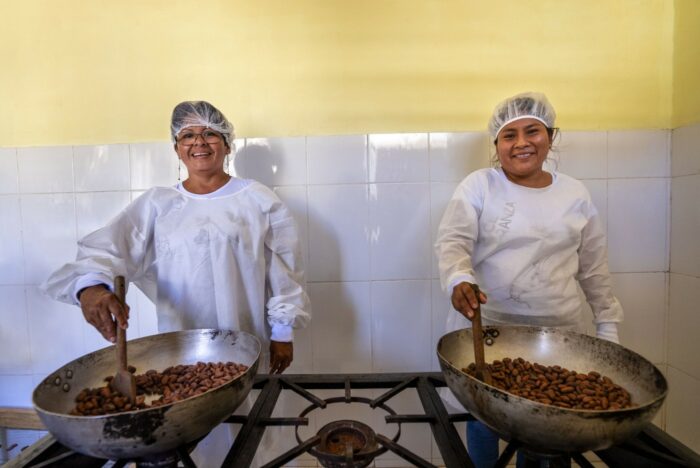 During the month of October, people and businesses around the world are celebrating National Co-op Month under the theme, “Co-ops Build Economic Power“.
During the month of October, people and businesses around the world are celebrating National Co-op Month under the theme, “Co-ops Build Economic Power“.
In Peru, a group of incarcerated women at the Women’s Penitentiary in Quillabamba are working together to form a cooperative.
“We are approximately 40 women and we have many things in common, such as we always wanted to give the best to our children. But we were wrong, trying to make easy money in the illicit drug trade,” said Cindy Quispe, an inmate at the prison.
Determined to provide for their families and build better lives for themselves, the women began producing chocolate under the name Dulce Esperanza, or “Sweet Hope.”
When Dulce Esperanza was first established, the women roasted cocoa beans over a campfire, husked them with their hands, and ground them using a single hand-operated mill. “We work hard thinking about the needs of our children. When we finally have the product, we must trust an intermediary and many times we are not paid,” explained Sofía Leon, a Dulce Esperanza chocolate artisan.
To overcome these challenges and become joint owners of their business, the women are working towards formalizing as a cooperative with support from NCBA CLUSA, USAID’s CDP, and local stakeholders, such as Peru’s National Penitentiary Institute, Ministry of Production, and National Commission for Development and Life without Drugs.
Through this partnership, Dulce Esperanza sold their chocolate at an international trade fair and teamed up with a regional cooperative association to scale production using their facilities as well as market their products at the association’s café in Cusco. Dulce Esperanza’s chocolate will also be sold online and in stores across Lima through a local retailer. To sustain this expansion, the women are learning to manage their finances, package and market products, and sustainably run a cooperative business.
As the world’s ninth largest cocoa exporter, exporting more than 45 metric tons of cocoa last year, Peru’s international chocolate reputation is promising for small producers like Dulce Esperanza. With favorable market conditions and the technical expertise, organizational knowledge, and networks needed to achieve its full potential, Dulce Esperanza hopes to increase their sales from 1,200 to 7,000 bars within the next year.
 “A cooperative will allow us to spend more time working in our workshop, be able to generate money, and send something to our children — and also be able to continue working when we reach our freedom,” said another chocolate artisan, Joshelin León.
“A cooperative will allow us to spend more time working in our workshop, be able to generate money, and send something to our children — and also be able to continue working when we reach our freedom,” said another chocolate artisan, Joshelin León.
After their release from prison, some of the women will pursue artisanal chocolate production in their own communities, while those from Quillabamba will continue working with Dulce Esperanza.
This article was originally published by USAID in Medium, read the original article here.


